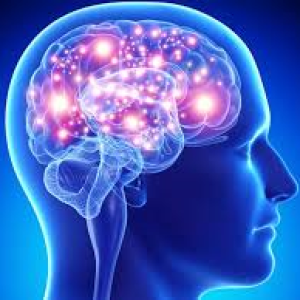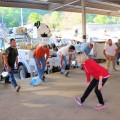
HeraldCourier.com
I have some good news for you and some bad news. The bad news is that none of us are getting any younger and with that comes some serious challenges. Let’s take a look at what happens as we age. There are certainly a lot of things that change when we age. Our eyesight changes, hearing can become impaired, muscles atrophy, skin sags, endurance decreases, flexibility decreases, coordination and balance may become compromised and believe it or not the brain can shrink. Your brain is a tissue, and like any other tissue, abuse, lack of use, and especially age causes its performance to decrease. Certain parts of the brain will shrink over time, especially the prefrontal cortex (an area at the front of the frontal lobe) and the hippocampus. Both areas are important to cognitive functions such as learning, memory, planning, and other complex mental activities.
Well that’s the bad news now let me share some good news with you! There are so many things you can do to prevent and slow down the physical decline of aging. Many of the above mentioned things that happen as we age can be positively affected by exercise. Let’s be specific to the brain since that is extremely important part of aging well and having a great quality of life.
Sometime in our late 20s, the hippocampus, the portion of our brains devoted to learning and memory, loses about a percent per year in total volume. So it’s no surprise that as we get older we naturally lose some of our memory and learning capacity.
According to Gretchen Reynolds, author of The First 20 Minutes, a book about the science of exercise, recent research shows that exercise can help your brain resist physical shrinkage and improve cognitive flexibility.
But what is surprising is that, just like with your muscles, exercise can slow or even reverse the physical decay of your brain.
Once you lose brain cells you can never get them back, new brain cells can be created–and exercise helps trigger that process.
By exercising you not only build muscle. You build a bigger brain.
Exercise also makes those new brain cells more effective. According to Reynolds.
So how much exercise is required to build your Brian? Most studies focused on aerobic activities like running or swimming. But research shows that walking can make a difference too. Older people who walked for just 40 minutes three days a week took two years off the “age” of their hippocampus-and improved memory function.
Wow what a great article to help us all understand the importance of exercise in our daily lives.
I know that a lot of you relate exercise to losing weight, but hey folks how important is it to you to keep your mind sharp as you age.
Think about it?
Definitely see you in the gym!!
Linda Stollings www.fitPrescriptions.com






